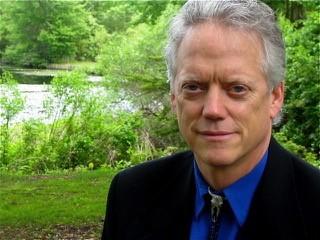
Award-winning CCNY filmmaker Campbell Dalglish.
Campbell Dalglish, associate professor of Film at The City College of New York, has been interested in chronicling the Spirit Roads of Native American Indians since he visited a sacred petroglyph on the Hopi Reservation in Arizona in 1972. He was accompanied by Hopi spiritual leader Thomas Banyacya who described to him the four levels of civilization where survival today means returning to the laws of nature.
That interest – buttressed by Campbell’s immersion in various tribal cultures over the past half-century -- has molded the documentary and narrative filmmaker’s career, for which he has won numerous awards and accolades for socially-conscious films such as “Roadkill” and “Charade Of A Fly.”
Campbell’s latest film, “Savage Land,” examines the shooting death of 18-year-old Cheyenne Arapaho Mah-hi-vist Red Bird Goodblanket in his family’s kitchen by Custer County (Okla.) Police on Dec. 21, 2013 in Clinton, Okla. The film premiered at The Americas Film Festival of New York on June 25, 2021, and begins a two-year run on the Public Broadcasting Service on Monday, Nov. 1 in commemoration of Native American Heritage Month.
Dalglish and his co-director, Native American studies scholar Henrietta Mann, reconstruct the events leading up to and culminating in the killing, using actual footage and audio of the shooting, as well as interviews with witnesses, Goodblanket family members, and other activists. In doing so, the film provides historical context for the discrimination and racism experienced by Native Americans to the present day. It explores the deeper issues afflicting Native Americans that stem from the forced relocation of 39 tribes to what is now the state of Oklahoma more than a century ago.
“Working with anthropologist Robert Vetter, I was able to participate in the daily doings and ceremonies of the Cheyenne and Arapaho who welcomed us into their homes,” said Dalglish. “I was able to see and witness their struggle for survival going back two centuries.”
Over the eight-year period it took to complete the project, Dalglish brought 13 City College students with him, teaching them the ethics and practices of ethnographic filmmaking at the Cheyenne and Arapaho Tribal College in Weatherford, Okla. He was able to begin the project with the aid of a $50,000 City SEED grant in 2012 (titled “Building Bridges: Indigenous Media"), shared with City College Anthropology Professor Lotti Silber. That was followed by a CCNY fellowship in 2018 where he was able to finish the film.
“In support of the whole people, the City College of New York and the Foundation for City College are proud to support Savage Land,” said Vice President for Institutional Advancement and Communications Dee Dee Mozeleski, who is also the executive director of The Foundation for City College Inc.
About the City College of New York
Since 1847, The City College of New York has provided a high-quality and affordable education to generations of New Yorkers in a wide variety of disciplines. CCNY embraces its position at the forefront of social change. It is ranked #1 by the Harvard-based Opportunity Insights out of 369 selective public colleges in the United States on the overall mobility index. This measure reflects both access and outcomes, representing the likelihood that a student at CCNY can move up two or more income quintiles. In addition, the Center for World University Rankings places CCNY in the top 1.8% of universities worldwide in terms of academic excellence. Labor analytics firm Emsi puts at $1.9 billion CCNY’s annual economic impact on the regional economy (5 boroughs and 5 adjacent counties) and quantifies the “for dollar” return on investment to students, taxpayers and society. At City College, more than 16,000 students pursue undergraduate and graduate degrees in eight schools and divisions, driven by significant funded research, creativity and scholarship. CCNY is as diverse, dynamic and visionary as New York City itself. View CCNY Media Kit.
Syd Steinhardt/Jay Mwamba
p: 212.650.7580
e:
jmwamba@ccny.cuny.edu